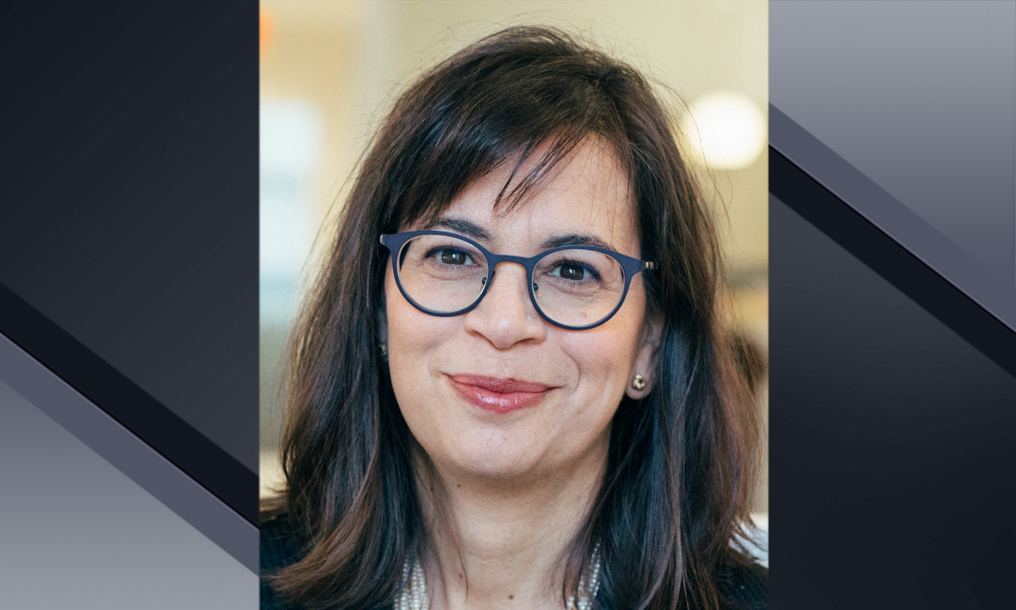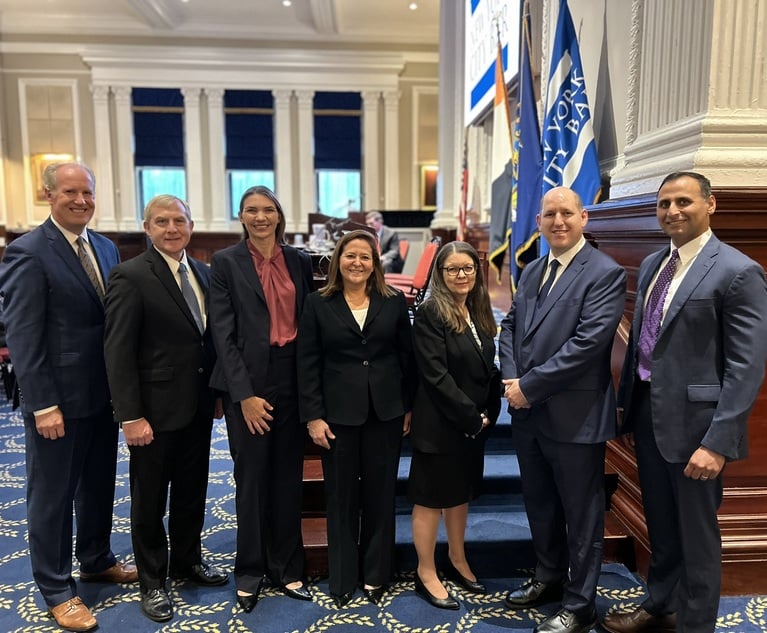Distinguished Leader: Aviva Will
Senior Managing Director, Burford Capital
October 17, 2019 at 11:01 AM
4 minute read
 Aviva Will, Senior Managing Director, Burford Capital
Aviva Will, Senior Managing Director, Burford Capital
What are some of your proudest recent achievements? As I look back on Burford's first decade, I am most proud of the team that I helped to build and the collaborative culture we've created that has enabled the firm's extraordinary growth and success. Most recently, the launch of The Equity Project in October 2018 was a proud moment for me; it was a manifestation of a career-long commitment to promoting women in law.
The Equity Project is a ground-breaking initiative designed to help close the gender gap in law through a $50 million pool of capital earmarked for financing commercial litigation and arbitration matters led by women. Less than 10% of the thousands of commercial matters brought to Burford in our first nine years were led by women lawyers. The Equity Project provides an economic incentive to change that and to incentivize women and their firms to put women in charge of large complex litigation. We recruited almost two dozen lawyers from the world's leading law firms and corporations to be Equity Project Champions and to help us promote the availability of the capital and incentivize change.
What does it mean to be a leader? High-value leadership for me is about driving a vision for your business throughout the organization. Being a leader means both supporting from behind and leading from in front—motivating the team to do their best work, supporting their development in conjunction with the growth of the business, and creating an environment where people can thrive at all levels of the organization.
Name a lawyer or mentor whose leadership inspired you. I spent several formative years as a young lawyer working for Bob Joffe, an extraordinary leader, who was both managing partner of Cravath, Swaine & Moore and a terrific mentor for scores of litigators who had the privilege to work with him. Bob knew how to motivate his team and the firm to serve the firm's clients in a way that delivered excellent results but also built relationships based on trust and confidence. His ability to bring clarity to complex matters made him not only a terrific courtroom lawyer but also an inspiring leader.
How are the business and profession of law changing, and how should lawyers adapt to the future? The question as asked speaks to the change that is happening. When I was starting out in law, one was called to the "profession of law." People didn't write or think about law as a business, though of course it always was.
Law firms are slowly evolving to be managed more like businesses. Disruptive and innovative industries like legal finance and legal tech are transforming law in a positive way. Litigation finance is injecting much needed capital into the legal industry to allow firms to grow and serve their clients more efficiently, and it is allowing clients to free up capital to grow their businesses instead of using their capital to undertake expensive litigation.
We are also beginning to see the fruits of decades of work to reinvent the culture of law to reflect better the diverse communities that it serves. The Equity Project is one such example, although we still have a long way to go before women and minorities are better represented among the leadership ranks of big law. Changing the culture of law will ultimately change the business of law—more diverse seats around the table lead to better discussions and better outcomes.
What is the best advice for someone considering a career in law, or someone already in the profession who is seeking to make a greater impact? Careers in law are often high pressure and high stress, so it helps to find satisfaction in the work you do. Find a way to do what you do in a way that connects with what you care about. If you're an innovator, find an environment where innovation is valued. If you're passionate about the environment or children or politics, find a role where your legal skills intersect with your personal commitment. There will always be the day-to day mundane work that needs to be done in any job. But I've found that real satisfaction in a career happens when your work connects with who you are as a person.
This content has been archived. It is available through our partners, LexisNexis® and Bloomberg Law.
To view this content, please continue to their sites.
Not a Lexis Subscriber?
Subscribe Now
Not a Bloomberg Law Subscriber?
Subscribe Now
NOT FOR REPRINT
© 2025 ALM Global, LLC, All Rights Reserved. Request academic re-use from www.copyright.com. All other uses, submit a request to [email protected]. For more information visit Asset & Logo Licensing.
You Might Like
View All
Elizabeth Cooper of Simpson Thacher on Building Teams in a 'Relationship Business'
4 minute read
For Paul Weiss, Progress Means 'Embracing the Uncomfortable Reality'
5 minute read
Kenneth Feinberg Had Dreams of Being on the Big Screen. His 9/11 Victims Fund Gave Him an Unexpected Star Turn

City Bar Holds 32nd Annual Henry L. Stimson Medal Presentation
Trending Stories
- 1BOI Reports: What Business Owners and Attorneys Should Know
- 2SurePoint Acquires Legal Practice Management Company ZenCase
- 3Day Pitney Announces Partner Elevations
- 4The New Rules of AI: Part 2—Designing and Implementing Governance Programs
- 5Plaintiffs Attorneys Awarded $113K on $1 Judgment in Noise Ordinance Dispute
Who Got The Work
J. Brugh Lower of Gibbons has entered an appearance for industrial equipment supplier Devco Corporation in a pending trademark infringement lawsuit. The suit, accusing the defendant of selling knock-off Graco products, was filed Dec. 18 in New Jersey District Court by Rivkin Radler on behalf of Graco Inc. and Graco Minnesota. The case, assigned to U.S. District Judge Zahid N. Quraishi, is 3:24-cv-11294, Graco Inc. et al v. Devco Corporation.
Who Got The Work
Rebecca Maller-Stein and Kent A. Yalowitz of Arnold & Porter Kaye Scholer have entered their appearances for Hanaco Venture Capital and its executives, Lior Prosor and David Frankel, in a pending securities lawsuit. The action, filed on Dec. 24 in New York Southern District Court by Zell, Aron & Co. on behalf of Goldeneye Advisors, accuses the defendants of negligently and fraudulently managing the plaintiff's $1 million investment. The case, assigned to U.S. District Judge Vernon S. Broderick, is 1:24-cv-09918, Goldeneye Advisors, LLC v. Hanaco Venture Capital, Ltd. et al.
Who Got The Work
Attorneys from A&O Shearman has stepped in as defense counsel for Toronto-Dominion Bank and other defendants in a pending securities class action. The suit, filed Dec. 11 in New York Southern District Court by Bleichmar Fonti & Auld, accuses the defendants of concealing the bank's 'pervasive' deficiencies in regards to its compliance with the Bank Secrecy Act and the quality of its anti-money laundering controls. The case, assigned to U.S. District Judge Arun Subramanian, is 1:24-cv-09445, Gonzalez v. The Toronto-Dominion Bank et al.
Who Got The Work
Crown Castle International, a Pennsylvania company providing shared communications infrastructure, has turned to Luke D. Wolf of Gordon Rees Scully Mansukhani to fend off a pending breach-of-contract lawsuit. The court action, filed Nov. 25 in Michigan Eastern District Court by Hooper Hathaway PC on behalf of The Town Residences LLC, accuses Crown Castle of failing to transfer approximately $30,000 in utility payments from T-Mobile in breach of a roof-top lease and assignment agreement. The case, assigned to U.S. District Judge Susan K. Declercq, is 2:24-cv-13131, The Town Residences LLC v. T-Mobile US, Inc. et al.
Who Got The Work
Wilfred P. Coronato and Daniel M. Schwartz of McCarter & English have stepped in as defense counsel to Electrolux Home Products Inc. in a pending product liability lawsuit. The court action, filed Nov. 26 in New York Eastern District Court by Poulos Lopiccolo PC and Nagel Rice LLP on behalf of David Stern, alleges that the defendant's refrigerators’ drawers and shelving repeatedly break and fall apart within months after purchase. The case, assigned to U.S. District Judge Joan M. Azrack, is 2:24-cv-08204, Stern v. Electrolux Home Products, Inc.
Featured Firms
Law Offices of Gary Martin Hays & Associates, P.C.
(470) 294-1674
Law Offices of Mark E. Salomone
(857) 444-6468
Smith & Hassler
(713) 739-1250






